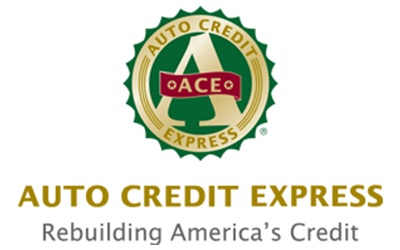Need a car but don’t make a lot of money? You’re not alone—and it’s still possible to get approved for a car loan, even with low income. Many lenders are willing to work with you if you meet the right criteria.

Your credit score, monthly budget, down payment, and choice of lender all affect your chances. This guide will show you what lenders look for and how to improve your odds of getting approved without overextending yourself.
What do lenders look for in low-income borrowers?
Getting approved for a car loan isn’t just about how much money you make. Lenders weigh several factors to decide if you’re a safe bet, even if your income is on the lower end.
Income Minimums
Most lenders want to see that you earn at least $1,500 to $2,000 per month in gross income. That’s the amount you make before taxes or deductions. Some lenders may go lower, but you’ll likely need strong credit or a large down payment to offset the risk.
Credit Score
Your credit score helps lenders predict how likely you are to repay the loan. The higher your score, the better your odds of getting approved with a lower interest rate. If your score is below 600, you’ll need to show other signs of reliability, like steady income or a co-borrower.
Debt-to-Income Ratio
This is the percentage of your income that goes toward debt payments each month. Most lenders want to see a debt-to-income ratio below 40% to 45%. The lower it is, the more breathing room you have for a car loan.
Down Payment
A larger down payment lowers the amount you need to borrow, which makes lenders more comfortable taking you on. It also shows you’re invested in the purchase. Aim for at least 10%, but more is always better if you can swing it.
Vehicle Choice
The car you pick matters. Lenders are more likely to approve loans for reliable, affordable vehicles with strong resale value. Older cars or cars with salvage titles may be harder to finance.
How to Improve Your Approval Odds
You don’t need a high income to get approved—but you do need a plan. These tips can help boost your chances of qualifying for a loan with better terms.
Check and Improve Your Credit Report
Start by pulling your credit reports from all three credit bureaus at AnnualCreditReport.com. Look for errors or outdated information that could be hurting your credit score. Dispute anything that is inaccurate or questionable. Then, pay down existing debt and avoid new credit applications before applying for a car loan.
Build a Realistic Budget First
Figure out what you can afford before you shop for a car. Use our free online auto loan calculator to estimate monthly payments based on the vehicle price, interest rate, and loan term. Make sure the payment fits comfortably within your income and doesn’t stretch you too thin.
Save Up for a Bigger Down Payment
A larger down payment improves your chances of approval and can also lower your monthly payment. It reduces the amount you need to borrow and may help offset a low credit score or income. Even a few extra hundred dollars can make a difference.
Consider Adding a Co-Borrower
If you have a trusted partner, spouse, or family member with steady income and decent credit, applying together can help. A co-borrower shares equal responsibility for the loan and appears on the title, which gives lenders more confidence to approve your application.
Stick to Affordable, Reliable Cars
Focus on cars that fit your budget and have a strong reputation for reliability. You’ll have better odds of approval, lower insurance premiums, and fewer repair headaches down the line. Skip luxury brands and stick with used models that hold value and perform well.
Best Places to Get a Low-Income Auto Loan
Not all lenders are the same—especially when you’re applying with a limited income. Some focus on credit unions and banks, while others specialize in helping borrowers with low income or bad credit. Knowing where to look can save you time and money.
Online Subprime Lenders
Online lenders that work with subprime borrowers often have more flexible approval requirements and fast applications. These companies cater to people with low income, poor credit, or both.
Here are a few to consider:
Auto Credit Express
- Minimum credit score: 400
- Loan term: Up to 72 months
- Accepts applicants with bad or no credit and even past bankruptcy
- A+ BBB rating
CarsDirect
- Minimum credit score: none
- Loan term: Up to 72 months
- Connects you with dealers within 24 hours.
- A+ BBB rating
car.Loan
- Minimum credit score: none
- Loan term: Up to 72 months
- All credit accepted. Lease, buy, or rent.
- Same-day approval
myAutoLoan
- Minimum credit score: 575
- Loan term: 24 to 84 months
- A+ BBB rating
These lenders typically charge higher interest rates than banks or credit unions, but they can be a solid option if you’re struggling to get approved elsewhere.
Credit Unions and Banks
Some banks and credit unions do lend to low-income borrowers, though the bar tends to be higher. You’ll usually need decent credit, a steady income, and a stronger overall application.
Credit unions are often more flexible than traditional banks and may offer lower rates, especially if you’re already a member. It’s worth checking with your local credit union or a bank where you already have accounts.
Buy Here, Pay Here Dealerships
These dealerships finance vehicles directly to customers—no outside lenders involved. That makes them accessible to borrowers who’ve been turned down elsewhere.
The downside? You’ll usually pay higher prices and interest rates. Some dealers also don’t report payments to the credit bureaus, which means your on-time payments won’t help your credit score. Make sure to ask before signing anything.
Nonprofit Auto Programs
Some nonprofits help low-income individuals get access to reliable transportation. These programs may offer low-interest loans, car repair help, or even donated vehicles.
One example is Ways to Work, which provides short-term auto loans to qualifying borrowers. Availability varies by state, and spots can be limited—but if you qualify, it can be one of the most affordable options out there.
State or County Grant Programs
In some areas, local governments offer small grants to help low-income families buy a car. Grants don’t need to be repaid, but they’re harder to find and typically have strict eligibility rules.
Two programs worth checking out:
- Working Cars for Working People
- Opportunity Cars
Search for auto assistance programs in your state or county to see what’s available.
Tips for Choosing the Right Loan
When money is tight, it’s tempting to jump on the first offer you get. But not all loans are created equal—and the wrong one could leave you in a worse spot.
Interest Rate and Loan Term Traps
A longer loan term might look good because of the lower monthly payment, but it usually means you’ll pay more in interest over time. Always compare both the monthly payment and the total cost of the loan before deciding.
Hidden Fees
Look closely at the loan agreement for hidden costs like documentation fees, origination fees, or prepayment penalties. These can add hundreds to your loan without you realizing it.
Whether Lender Reports to Credit Bureaus
Make sure the lender reports your payments to at least one credit bureau. That way, your on-time payments can help build your credit score. If they don’t report, you’re missing a chance to improve your financial standing.
How to Avoid Predatory Lending
Be cautious with lenders that promise approval without checking your income or credit. They often bury high fees and unreasonable terms in the fine print. If something feels off, walk away. A legitimate lender will explain everything clearly and won’t pressure you to sign on the spot.
Final Thoughts
Getting a car loan with low income is absolutely possible—but it takes planning. Focus on improving your credit, saving for a down payment, and choosing the right lender for your situation. The more prepared you are, the better the loan terms you’ll qualify for.
Before applying, run your numbers with a free auto loan calculator to stay within budget. And if you’re also trying to rebuild your credit, check out our credit-building tips and tools to help you make progress while you drive.








